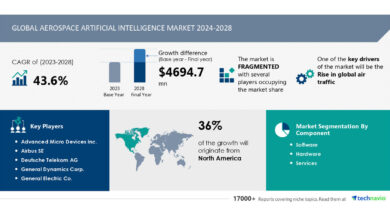Eagleman Envisions AI as a Partner in Scientific Discovery

Summary: During a lecture at the University of Utah, neuroscientist David Eagleman discussed the potential of artificial intelligence in scientific exploration and the quest to understand true intelligence. He described AI as a powerful tool for synthesis and elaboration of information, yet he also distinguished between performing tasks and possessing actual understanding.
Artificial intelligence, with its advanced algorithms and massive data processing capabilities, has prompted many to wonder about the true essence of intelligence. Stanford University neuroscientist David Eagleman, speaking at the University of Utah, threw light on this subject. He underlined artificial intelligence’s vast information-processing abilities but asserted that this does not equate to sentience.
Eagleman questioned whether AI could genuinely claim intelligence or just mimic it effectively. To exemplify his stance, he referred to a thought experiment illustrating that while a computer, like a person with books in the Chinese Room scenario, can seem intelligent, neither truly understands their output. They simply follow learned rules to convince others of their know-how.
Critical to Eagleman’s proposition is the potential of AI in the realm of scientific achievement. He differentiated between simple data aggregation and the groundbreaking conceptual leaps made by minds like Einstein or Darwin. He acknowledged AI’s burgeoning creativity but highlighted its lack of human relevance filtering.
Eagleman is optimistic about AI’s future role as an auxiliary force in science, potentially equalling human creativity and serving as a perpetual, personalized assistant. He envisions a future where AI will not only support but also unlock new scientific insights, acting as a catalyst for both knowledge and understanding.
The Impact and Future of Artificial Intelligence in Various Industries
Artificial intelligence (AI) has revolutionized numerous industries, transforming the way we interact with technology and each other. From healthcare to finance, AI’s capacity to process and analyze large sets of data at unprecedented speeds has unlocked new opportunities for efficiency and innovation. In the healthcare industry, AI tools are improving diagnostic accuracy, predicting patient outcomes, and personalizing treatment plans. In finance, algorithms are used for automated trading, fraud detection, and personalized financial services.
Market Forecasts for AI
The market outlook for AI is extraordinarily bullish. According to insights from reputed market research firms, global spending on artificial intelligence systems is projected to reach into the hundreds of billions of dollars by the mid-2020s, signifying a compound annual growth rate (CAGR) that far exceeds the average for other technologies. This growth is anticipated across all sectors, with particularly notable expansions in businesses’ analyses, cognitive applications, and AI software platforms. For more information on industry reports and forecasts, you might visit the website of a market research firm like Gartner or Forrester.
Issues Related to the AI Industry
Though the benefits of AI are manifold, the industry also faces critical challenges. Ethical concerns surrounding privacy, bias, and accountability are at the forefront of discussions about AI’s integration into society. The potential for job displacement due to automation has also prompted calls for policy reforms and educational initiatives to prepare the workforce for a changing economy.
Furthermore, the energy demands and environmental impact of operating large AI systems are concerns that the industry must address. Similarly, the demand for transparency and explainability in AI’s decision-making processes is growing, as stakeholders call for AI that can be understood and trusted by its users.
David Eagleman’s discourse at the University of Utah reflects a broader conversation happening across multiple fields, from ethics and philosophy to computer science and engineering. His consideration of AI’s capability for understanding underscores the distinction between artificial intelligence and human consciousness, a topic of much interest and debate within the academic and scientific communities.
As we harness AI’s potential, it is crucial to maintain ongoing dialogue about its role and impact on human society, both as a tool for progress and subject to scrutiny. To keep abreast of recent developments in AI research and thought leadership, one might refer to institutions like Stanford University or look for upcoming lectures and conferences at academic institutions like the University of Utah.
Eagleman’s optimism about AI’s capacity to contribute to scientific discovery highlights the need for a symbiotic relationship between technological tools and human insight. By acknowledging the limitations of AI, we can better integrate its strengths with human creativity and reasoning to advance not just scientific exploration but also address the nuanced and complex challenges of modern society.

Iwona Majkowska is a prominent figure in the tech industry, renowned for her expertise in new technologies, artificial intelligence, and solid-state batteries. Her work, often at the forefront of innovation, provides critical insights into the development and application of cutting-edge AI solutions and the evolution of energy storage technologies. Majkowska’s contributions are pivotal in shaping the future of sustainable energy and intelligent systems, making her a respected voice in both academic and industrial circles. Her articles and research papers are a valuable resource for professionals and enthusiasts alike, seeking to understand the impact and potential of these transformative technologies.



